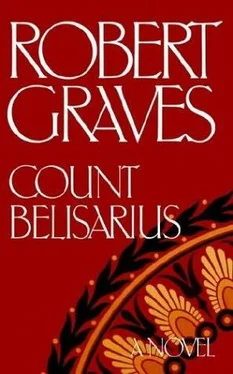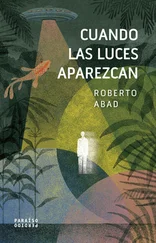Robert Graves - Count Belisarius
Здесь есть возможность читать онлайн «Robert Graves - Count Belisarius» весь текст электронной книги совершенно бесплатно (целиком полную версию без сокращений). В некоторых случаях можно слушать аудио, скачать через торрент в формате fb2 и присутствует краткое содержание. Жанр: Исторические приключения, на английском языке. Описание произведения, (предисловие) а так же отзывы посетителей доступны на портале библиотеки ЛибКат.
- Название:Count Belisarius
- Автор:
- Жанр:
- Год:неизвестен
- ISBN:нет данных
- Рейтинг книги:3 / 5. Голосов: 1
-
Избранное:Добавить в избранное
- Отзывы:
-
Ваша оценка:
- 60
- 1
- 2
- 3
- 4
- 5
Count Belisarius: краткое содержание, описание и аннотация
Предлагаем к чтению аннотацию, описание, краткое содержание или предисловие (зависит от того, что написал сам автор книги «Count Belisarius»). Если вы не нашли необходимую информацию о книге — напишите в комментариях, мы постараемся отыскать её.
Count Belisarius — читать онлайн бесплатно полную книгу (весь текст) целиком
Ниже представлен текст книги, разбитый по страницам. Система сохранения места последней прочитанной страницы, позволяет с удобством читать онлайн бесплатно книгу «Count Belisarius», без необходимости каждый раз заново искать на чём Вы остановились. Поставьте закладку, и сможете в любой момент перейти на страницу, на которой закончили чтение.
Интервал:
Закладка:
So far, both my accounts agree as to the order of events, but at this point there comes a difference. First let me give the story as I heard it from a man of Adrianople a great many years later; who had heard it, he said, from Simeon's elder son.
According to this Adrianopolitan, Simeon closed his exposition with the following words: 'Hut Pope Leo also remarked on this head — I can quote his very words: "Ardescat in foco ferritin. Sunt vinculo mea solvenda. Max cliani pugionibus et pipere pugnandum est. Tace!" How can you be obedient to such gross folly, men of Cappadocia?'
The Sergeant of the Cappadocians, pretending to understand Latin, cried out recklessly: 'The Blessed Pope Leo spoke very good sense. He was right in every word. Out of your own mouth you are confuted.' For they were all unaware that Simeon had conveyed a secret message to Belisarius to heat the spit in the embers, to cut his bonds, and to be prepared to do battle with daggers and pepper.
But, according to the version that I heard from Andreas not many years ago, it was Belisarius who spoke the Latin words, pretending to confute Simeon, and crying out: 'Ardescit in foco ferritin manibus luis propinquum. Vinculo solvam. Max etiam pugionibus el pipere pugnabitur' — at which (Andreas said) the ignorant Cappadocians cheered the boy as a stout champion of the true faith. These words of Belisarius, if spoken, conveyed a message to Simeon that the spit was already heating in the fire close to his hands, that he would cut his bonds, and that a battle would soon be fought with daggers and pepper.
Against the acceptance of Andreas's account is the well-known tendency in old people to exaggerate or distort the experiences of their youth, especially when telling of a person afterwards famous. Thus, St Matthew learned from certain old gossips that the infant Jesus once restored a dead sparrow to life for them when they were playmates together; and has recorded this in his second Gospel with such other extravagances as that He spoke from His Mother's womb and reproved His stepfather Joseph. But in favour of this version I can say that it came to me not at third but at first hand, and that I knew Andreas as a man of confidence. Nor must it be objected that so young a child as Belisarius then was could not have spoken good Latin, the Latin of Rome: for good Latin was his mother's native tongue. Her own father had been a Roman Senator who left Italy with his family, fifty years before this time, when the barbarian Vandal, King Geiserich, plundered the temples and noble houses of Rome; he came to the Eastern part of the Roman Empire for security, and his family remained true to good Latin. So it was that Belisarius spoke three languages already: the Thracian vernacular of his family estate, and Latin, in which his mother and her chaplain always conversed with him, and Greek, the common language of the Eastern Empire — but Greek not fluently as yet.
Well, whoever it was who acted as general on this occasion, I can tell you at least how the battle went. First, Belisarius secretly cut Simeon's cords with his dagger. He was unperceived by the Cappadocians, who had finished their meat by now but were still seated drinking at the table. Then, nudging Armenian John to preparedness, he took a great fistful of ground pepper and came up to the table and whirled it in their faces, blinding all six of them. Up jumped Simeon with a roar, brandishing the red-hot spit which Belisarius had put to heat in the hearth; and the Thracians, Andreas and the porter ran to catch up their weapons, which had been stacked not far from them.
The Cappadocians roared like bulls with pain and helpless anger. They were fuddled with wine, entangled with the cord at their feet, blinded with pepper, and paralysed by sneezes. Simeon at the first onset struck two of them terrible blows on the head with the red-hot spit; so that even though Palaeologus took no part whatsoever in the fight, the Cappadocians were now outnumbered, four by five. Their stools were pulled from under them, and they fell sprawling to the ground. The boys and the slaves stood over them with drawn swords and daggers raised.
Simeon hurriedly fetched some piece! of harness from the stable and bound them one by one — he was a saddler by trade, and handy with knots. He, as it were, knotted each bond with a Monophysite argument, saying: 'Escape this logical predicament, Sir, if you can' or 'That text draws tight on your conscience, does it not?'
They answered piteously: 'For Christ's sake, best of men, bring sponge and water, or we shall go blind with this fire-dust.'
But he began in a powerful voice to sing the Hymn of the Seraphim with those interpolations in the Monophysite style which had caused scandals, riots, and bloodshed in many Christian churches. When they were all secure, Simeon informed them that Christ had enjoined him to forgive his enemies; and sponged their inflamed eyes tenderly, saying, 'In the name of single-natured Christ.' So they thanked him.
When Simeon learned from Belisarius how he had planned the battle he turned to Palaeologus and said: 'I had thought it a simple miracle, and was not therefore greatly astonished, just as I think the prophet Balaam was not greatly astonished when his ass suddenly spoke in God's name. For all things are possible with God, and one should no more be surprised at such obvious irrationalities as speaking asses or food sufficient for twelve men being stretched to feed 1,000 (and even leaving a superfluity), than at the natural braying of asses or at citizens starving naturally because no food is left in their city. For in the one case you have God, whose function it is to transcend the impossible, and in the other you have nature, whose function it is to obey the ways that God has indicated for beasts and men. But where justifiable astonishment arises is in a case like the present, where nature excels herself by neither divine nor demonic aid. If this child is spared until manhood he will make a general of the first rank: for he has the six chief gifts of generalship — patience, courage, invention, the control of his forces, the combination of different arms in attack, and the timing of the decisive blow. I was with the remounts in the Persian wars and came across both good generals and bad; and I know.'
Palaeologus answered: 'Yet if he does not add to these the gift of modesty, he will be nothing.' Which was a wise remark in its way, and a fitting seventh virtue to cap the rest.
The hare had been eaten, and most of the fresh bread, but there was biscuit left in their saddle-bags and some sausages, so they did not go hungry. They thought it unsafe to stay at the inn for the night, fearing lest someone should give the alarm at John's castle: so they tied the Cappadocians on their horses, and Simeon and the slaves were each to conduct two of them, tying the horses' heads together. The old woman load run out of the house when the fighting began; when she returned, to find these desperate fellows tamed, she was all gratitude, as if it had been done wholly on her behalf. Nevertheless, they paid her well.
Belisarius rode ahead with Palaeologus, and Armenian John acted as rear-guard. At dawn they rested in a wood, where one of the Cappadocians died of the injuries to his head. The others cursed and swore continually, but made no attempt to break free. Later in the day they reached Adrianople, without further adventures, where Simeon handed the Cappadocians over to the judge. Simeon's fellow-burgesses greeted him with joy and astonishment, because the constabulary had reported him captured.
The men were confined to the prison and held there until John should ransom them. They could not be charged with murder, nor indeed with anything worse than stealing a cooked hare, for it was not clear whether they had intended to obey John's murderous orders. John sent a message saying that he was justified in binding and removing Simeon, who had insolently trespassed on his estate.
Читать дальшеИнтервал:
Закладка:
Похожие книги на «Count Belisarius»
Представляем Вашему вниманию похожие книги на «Count Belisarius» списком для выбора. Мы отобрали схожую по названию и смыслу литературу в надежде предоставить читателям больше вариантов отыскать новые, интересные, ещё непрочитанные произведения.
Обсуждение, отзывы о книге «Count Belisarius» и просто собственные мнения читателей. Оставьте ваши комментарии, напишите, что Вы думаете о произведении, его смысле или главных героях. Укажите что конкретно понравилось, а что нет, и почему Вы так считаете.












